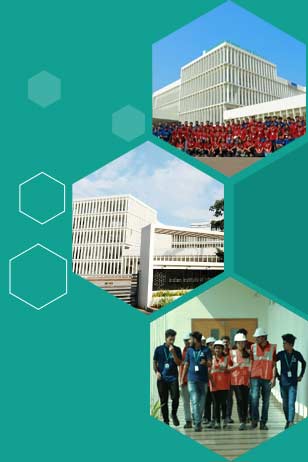Managerial Level
Post Graduate Program in Real Estate and Urban Infrastructure Management (PGP REUIM)
Program curated as per RICS pathways and competencies guidelines

The Real Estate and Urban Infrastructure Management program equips students with essential knowledge and skills for urban development. Covering real estate fundamentals, legal frameworks, investment analysis, and urban planning principles, the program emphasizes sustainable development and infrastructure systems. Students learn property and facility management, market economics, and valuation methods, with a strong focus on sustainability, project management, and technology. Practical experiences through case studies, internships, and hands-on applications complement theoretical learning, while ethical considerations and professionalism are woven throughout, preparing graduates for impactful careers in the field.
Key Areas
Focuses on Real estate economics and finance, Real estate Appraisal, Real estate Investment, Urban Policy & knowledge on real estate markets, Digital Project Management, Sustainable investment practices, Data Analytics in real estate
Programme Opportunities
Graduates of the Real Estate and Urban Infrastructure Management program have diverse career opportunities. They can lead real estate development projects, design sustainable urban communities, and manage the operation of various properties. Roles in infrastructure management involve overseeing transportation and utility projects. Graduates can also focus on sustainable development, investment analysis, and project management. Consulting opportunities allow them to advise on acquisitions and market trends, while roles in government involve shaping urban development policies. These careers span both public and private sectors, enabling graduates to significantly impact urban environments.
Course Information
Course Status Upcoming
Course Level Managerial Level
Duration 12 Months
Qualification B. Tech / BE- Civil / B. Arch
Course Fee Rs. 1,46,500
Faculty















Internship
The Real Estate and Urban Infrastructure Management program offers comprehensive internships that integrate classroom learning with practical experience. Students participate in real estate development, pre-development planning, design and documentation, project execution and management, and post-development activities. They gain expertise in market analysis, investment valuation, financing, and capital structure decisions. Internships also cover urban policy, development control, urban renewal, housing policy, GIS, GPS, remote sensing, infrastructure systems, smart cities, and emerging technologies. These opportunities enhance professional skills and industry connections, preparing students for successful careers in real estate and urban infrastructure management.







